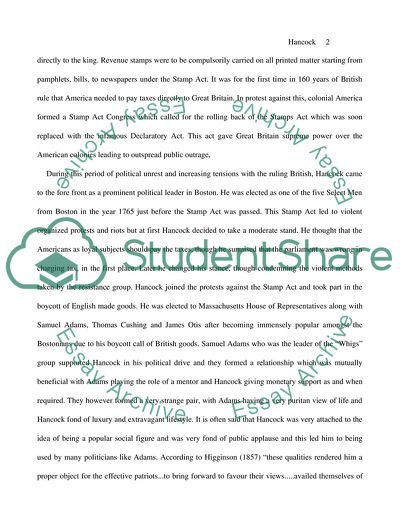Cite this document
(John Hancock the Forgotten Hero Essay Example | Topics and Well Written Essays - 2250 words, n.d.)
John Hancock the Forgotten Hero Essay Example | Topics and Well Written Essays - 2250 words. https://studentshare.org/biographies/1723310-john-hancock
John Hancock the Forgotten Hero Essay Example | Topics and Well Written Essays - 2250 words. https://studentshare.org/biographies/1723310-john-hancock
(John Hancock the Forgotten Hero Essay Example | Topics and Well Written Essays - 2250 Words)
John Hancock the Forgotten Hero Essay Example | Topics and Well Written Essays - 2250 Words. https://studentshare.org/biographies/1723310-john-hancock.
John Hancock the Forgotten Hero Essay Example | Topics and Well Written Essays - 2250 Words. https://studentshare.org/biographies/1723310-john-hancock.
“John Hancock the Forgotten Hero Essay Example | Topics and Well Written Essays - 2250 Words”. https://studentshare.org/biographies/1723310-john-hancock.


